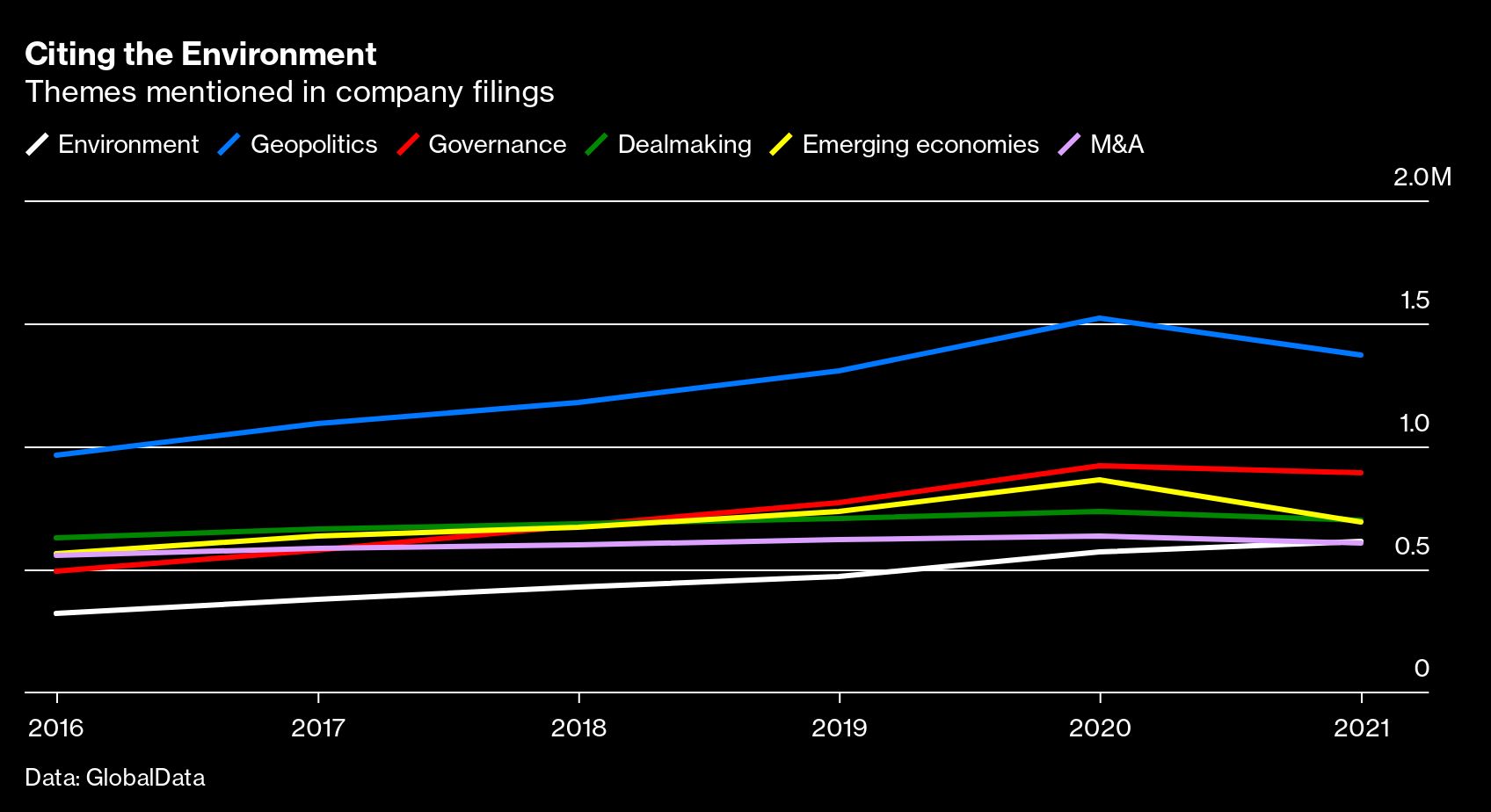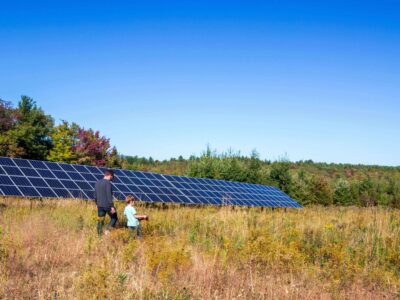(Bloomberg Businessweek) —
Caroline James says if she’d been told a few years ago that she’d be an MBA candidate right now, “I would have said: ‘Absolutely not.’ ” Back in 2014, as an undergraduate studying political science and government, she was arrested in Washington, D.C., while protesting the Keystone XL oil pipeline. She was more focused on environmentalism than capitalism.
But after a stint in consulting, James, 28, applied to the Yale School of Management. She wanted to understand more about how the corporate world works—so she could fix it. The school’s sustainability club was also a big draw, as was its tie-up with the university’s School of Environment.
MBA programs are increasingly teaching sustainability, as big business seeks leaders who can help it clean up. Mentions of the environment have doubled in earnings reports in the past five years; 600,000 cited the term in 2021, according to analytics firm GlobalData Plc. That recent focus on sustainability means business schools are being confronted with the climate footprints of their programs—and indeed of capitalism—raising the expectation among students that they do more to champion the environment

Although approaches vary across programs, most have a long way to go, says Giselle Weybrecht, a sustainability consultant who works with business schools. She says sustainability modules largely remain electives and students are still taught to pursue profit above all else. “While business schools are talking the talk, and many are making changes on campus and to their facilities,” she says, “the way that they are operating as a school is not fundamentally changing.”
James, who wants to use her education to work on circular economy solutions that tackle waste, says she’s grateful that half of her MBA classes are taken outside the School of Management, so she can study environmental issues. But she still finds it tough to fit enough sustainability content in, alongside the fundamentals.

In the U.K., Lincoln International Business School’s two-year Master of Sustainable Business Administration program places what are often bolt-on options about how to run a greener business into the core courses all MBA students must take. In 2019, French business school Essec introduced its introduced its Rise strategy, which places sustainability at the center of the school’s operations. That means drastically reducing its carbon footprint.
Essec’s research uncovered that 80% of the school’s carbon footprint comes from its students crisscrossing the globe. That presented a conundrum, says Anne-Claire Pache, the dean of strategy and sustainability. “A lot of the pedagogical value of the school comes from this exposure students have in spending time abroad,” she says. Essec now subsidizes students who travel by train, rather than plane, and has ended all long-haul travel for course trips. The goal is to reduce its carbon footprint initially by 25%.
Shanghai’s China Europe International Business School says it’s been carbon-neutral since 2011, achieving that by reducing emissions, planting trees, and purchasing carbon credits to offset its emissions. Darden School of Business at the University of Virginia reached a similar goal in late 2018 after bringing online a 160-acre solar power array 90 miles east of campus.
Harvard Business School reduced its greenhouse gas emissions by 47% from 2006 to 2019 by conserving energy, adjusting heating and cooling schedules for spaces, and increasing staff and student awareness of their behavior. “We hope that being surrounded by sustainability on campus, they come to see that as the norm and expect it or create it if they don’t find it in their future organizations,” says Leah Ricci, associate director of sustainability and energy management. HBS is developing a revamped sustainability plan that it intends to release later this year.
Pressure from students may have the biggest impact on schools’ efforts. HBS has a sustainability club with almost 200 members, while the number of students who register an interest in business and the environment has increased to almost 45% from around 20% in recent years.
One way for B-schools to do better, says Yale’s James, is for professors to say the quiet part about capitalism out loud. “It would be helpful if, in these classes, we acknowledged that the competitive strategy for companies is to generate the most profit,” she says, and that “we know this isn’t working for our planet.”(Corrects reference to scheduling in the ninth paragraph to specify heating and cooling rather than classes, and clarifies reference to student interest in business and the environment in penultimate paragraph.)
© 2022 Bloomberg L.P.





